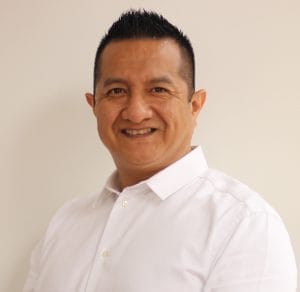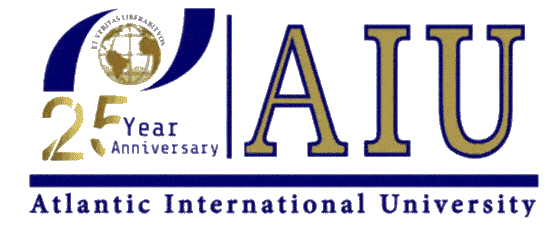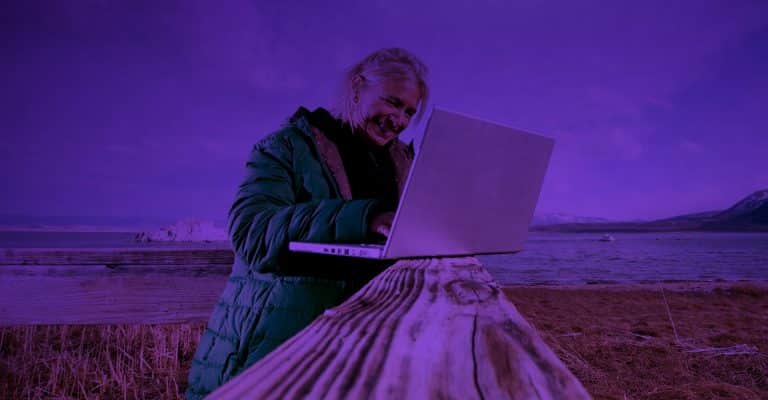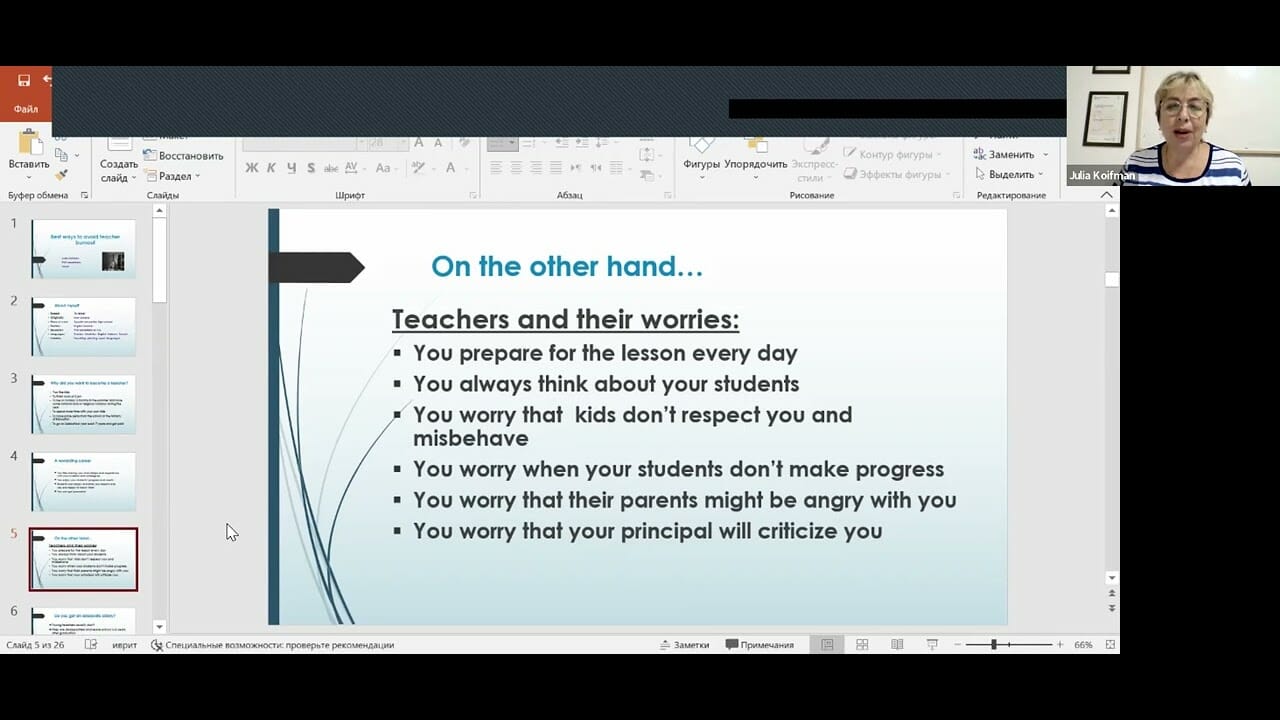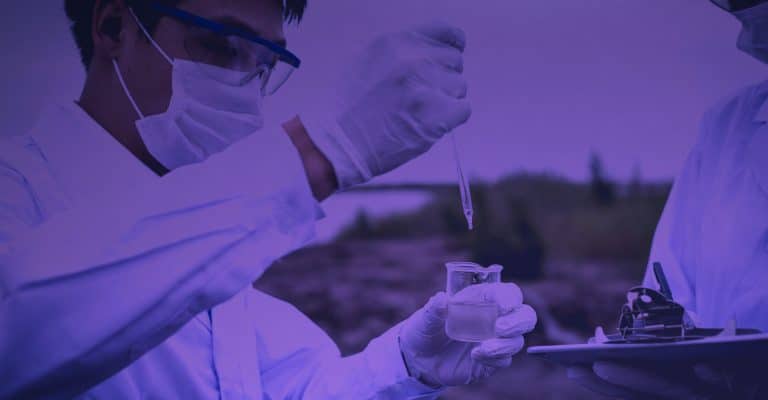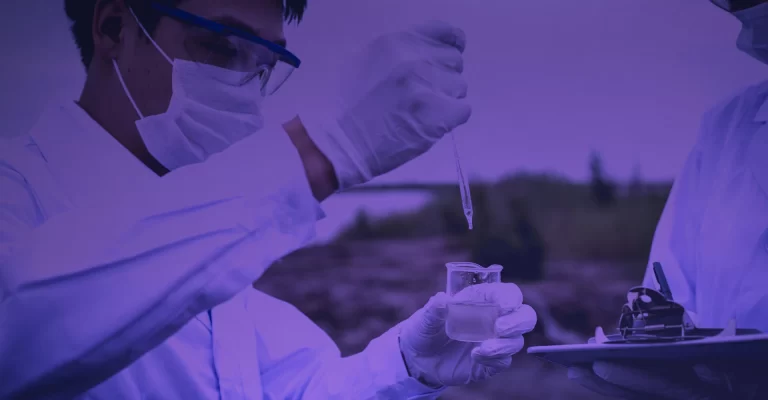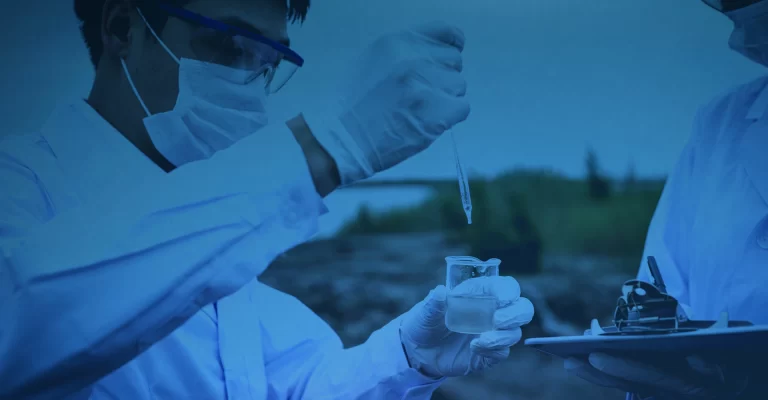- RESEARCHDistance Learning at AIU is enhanced by vast academic resources and innovative technologies build into the Virtual Campus: Hundreds of self-paced courses with video lectures and step by step lessons, thousands of optional assignments, 140,000 e-books, the Social Media & Networking platform allowing collaboration/chat/communications between students, and MYAIU develop students holistically in 11 areas beyond just academics.
- PROGRAMS OFFERED
- Areas of Study
- Courses and Curriculum
- Open Courses
- Register for a Program
- Certificate Program
-
Associate program
- Associate in Actuarial Science
- Associate in Addiction Counseling
- Associate in Agriculture Food And Resources
- Associate in Animal Science
- Associate in Anti Terrorism Security
- Associate in Behavior Analysis In Special Education
- Associate in Bioethics
- Associate in Biosystems
- Associate in Blockchain Technology & Digital Currency
- Associate in Business Communication
- Associate in Business Management
- Associate in Chemistry
- Associate in Climatology
- Associate in Cloud Computing
- Associate in Computer Engineering
- Associate in Computer Programming
- Associate in Computer Science
- Associate in Criminal Justice
- Associate in Culinary Arts
- Associate in Cultural Theological Communication
- Associate in Cybersecurity And Hacking
- Associate in Data Communication And Networking
- Associate in Database Administrator
- Associate in Early Childhood Education
- Associate in Ecotechnology
- Associate in Ecotourism
- Associate in Education
- Associate in Educational Technology
- Associate in Electric Vehicle Engineering
- Associate in Electrochemical Engineering
- Associate in Electronic Engineering
- Associate in English Literature
- Associate in Environmental Science
- Associate in eVTOL Engineering
- Associate in Fashion Design
- Associate in Fine Arts
- Associate in Foreign Trade
- Associate in Genetic Engineering
- Associate in Geography
- Associate in Geology
- Associate in Geophysical Sciences
- Associate in Graphic Design
- Associate in Health Sciences
- Associate in History
- Associate in Human Resources
- Associate in Integrated Water Management
- Associate in International Finance
- Associate in International Marketing
- Associate in Islamic Studies
- Associate in Kinesiology And Physiotherapy
- Associate in Library technology
- Associate in Linguistics
- Associate in Management
- Associate in Management Information Systems
- Associate in Maritime Management
- Associate in Metallurgy
- Associate in Micro and Multimode Grid Design
- Associate in Modern Power and Energy Systems
- Associate in Multimedia Design and Digital Art
- Associate in Nutrition
- Associate in Oil Gas And Energy Engineering
- Associate in Operations Management
- Associate in Optoelectronic Systems
- Associate in Organizational Development
- Associate in Organizational Diversity
- Associate in Pedagogical Training For Professionals
- Associate in Physical Culture And Sports
- Associate in Physics
- Associate in Public Health
- Associate in Quantum Computing Technology
- Associate in Radio And Television Production
- Associate in Scenography
- Associate in Social Media Marketing
- Associate in Sociology
- Associate in Sports Marketing
- Associate in Sports Psychology
- Associate in Sustainable Design and Construction
- Associate in Sustainable Materials Science
- Associate in Sustainable Natural Resources Management
- Associate in Sustainable Tourism
- Associate in Synthetic Biology
- Associate in Virtual Archival Science
- Associate of Adult Education
- Associate of Advertising
- Associate of Agriculture
- Associate of American History
- Associate of Biology
- Associate of Chemical Engineering
- Associate of Civil Engineering
- Associate of Communications
- Associate of Construction Management
- Associate of Economics
- Associate of Educational Administration
- Associate of Electrical Engineering
- Associate of Finance
- Associate of Healthcare Administration
- Associate of Human Resources Management
- Associate of Humanities
- Associate of Hydrology
- Associate of Industrial Engineering
- Associate of Information Systems
- Associate of Information Technology
- Associate of Interior Design
- Associate of International Relations
- Associate of Journalism
- Associate of Legal Studies
- Associate of Logistics
- Associate of Marketing
- Associate of Mass Media and Communication
- Associate of Mathematics
- Associate of Mechanical Engineering
- Associate of Mining Engineering
- Associate of Music
- Associate of Nutrition Science
- Associate of Philosophy
- Associate of Physical Education
- Associate of Political Science
- Associate of Project Management
- Associate of Psychology
- Associate of Renewable Energy
- Associate of Software Engineering
- Associate of Sport Science
- Associate of Statistics
- Associate of Strategic Management
- Associate of Technical Writing
- Associate of Telecommunications
- Associate of Theater
- Associate of Theology
- Associate of Tourism Planning and Development
- Associate of Travel and Tourism
- Associate of Unmanned Areal Systems Engineering
- Associates in Artificial Intelligence
- Associates in Engineering Systems
- Associates in Physical Anthropology
- Associates in Social Sciences
- Associates in Sociocultural Anthropology
- Associates in Systems Engineering
- Associates of Accounting
- Associates of Anthropology
- Associates of Archeology
- Associates of Architecture
- Associates of Art History
- Associates of Banking and Finance
- Associates of Business Administration
- Associates of Public Administration
- Associates of Science
- Associates of Urban Planning
- Associates of Visual and Performing Arts
- Micro and Multimode Grid Design
-
Bachelor Program
- Bachelor in Data Communication and Networking
- Bachelor in Actuarial Science
- Bachelor in Addiction Counseling
- Bachelor in Agriculture, Food and Resources
- Bachelor in Animal Science
- Bachelor in Anthropology
- Bachelor in Anti Terrorism Security
- Bachelor in Artificial Intelligence
- Bachelor in Arts in Cultural Theological Communication
- Bachelor in Autonomous Vehicle Technology
- Bachelor in Bachelor of Bioethics (BA)
- Bachelor in Behavior Analysis in Special Education
- Bachelor in Bibliotechnology
- Bachelor in Biosystems
- Bachelor in Blockchain Technology & Digital Currency
- Bachelor in Business Communication
- Bachelor in Business Management
- Bachelor in Chemistry
- Bachelor in Cloud Computing
- Bachelor in Computer Science
- Bachelor in Criminal Justice
- Bachelor in Culinary Arts
- Bachelor in Cybersecurity and Hacking
- Bachelor in Database Administrator (BS)
- Bachelor in Ecotechnology
- Bachelor in Ecotourism
- Bachelor in Education (B.Ed, BS)
- Bachelor in Educational Technology
- Bachelor in Electric Vehicle Engineering
- Bachelor in Electrochemical Engineering
- Bachelor in English Literature
- Bachelor in eVTOL Engineering
- Bachelor in Fashion Design (BA)
- Bachelor in Fine Arts
- Bachelor in Foreign Trade
- Bachelor in Genetic Engineering
- Bachelor in Geology
- Bachelor in Geophysical Sciences
- Bachelor in Graphic Design
- Bachelor in Health Sciences
- Bachelor in Integrated Water Management
- Bachelor in International Finance
- Bachelor in International Marketing
- Bachelor in Islamic Studies
- Bachelor in Kinesiology and Physiotherapy
- Bachelor in Linguistics
- Bachelor in Management
- Bachelor in Metallurgy
- Bachelor in Micro and Multimode Grid Design
- Bachelor in Modern Power and Energy Systems
- Bachelor in Multimedia Design and Digital Art
- Bachelor in Nutrigenetics
- Bachelor in Operations Management (BA)
- Bachelor in Optoelectronic Systems
- Bachelor in Organizational Development
- Bachelor in Organizational Diversity
- Bachelor in Pedagogical Training for Professionals
- Bachelor in Physical Anthropology
- Bachelor in Physical Culture And Sports
- Bachelor in Physics
- Bachelor in Public Relations
- Bachelor in Quantum Computing Technology
- Bachelor in Radio And Television Production
- Bachelor in Scenography
- Bachelor in Social Media Marketing
- Bachelor in Social Sciences
- Bachelor in Sociocultural Anthropology
- Bachelor in Sport Management
- Bachelor in Sports Marketing
- Bachelor in Sports Psychology
- Bachelor in Sustainable Design and Construction
- Bachelor in Sustainable Materials Science
- Bachelor in Sustainable Natural Resources Management
- Bachelor in Sustainable Tourism
- Bachelor in Synthetic Biology
- Bachelor in Virtual Archival Science
- Bachelor of Adult Education
- Bachelor of Advertising
- Bachelor of Animation
- Bachelor of Art History
- Bachelor of Biohacking and Nutrigenomics
- Bachelor of Educational Administration
- Bachelor of Healthcare Administration
- Bachelor of Human Resources Management
- Bachelor of Humanities
- Bachelor of Hydrology
- Bachelor of Information Technology
- Bachelor of Journalism
- Bachelor of Mass Media and Communication
- Bachelor of Mathematics
- Bachelor of Philosophy
- Bachelor of Physical Education
- Bachelor of Project Management
- Bachelor of Public Administration
- Bachelor of Software Engineering
- Bachelor of Sport Science
- Bachelor of Sports Science
- Bachelor of Statistics
- Bachelor of Strategic Management
- Bachelor of Technical Writing
- Bachelor of Theater
- Bachelor of Theology
- Bachelor of Tourism Planning and Development
- Bachelor of Travel and Tourism
- Bachelor of Unmanned Areal Systems Engineering
- Bachelor of Urban Planning
- Bachelor of Visual and Performing Arts
- Bachelor of Web Design
- Bachelors in Energy Storage and Battery Technology
- Bachelors in Accounting
- Bachelors in Accounting & Finance
- Bachelors in Agronomy Engineering
- Bachelors in Architecture
- Bachelors in Banking and Finance
- Bachelors in Biology
- Bachelors in Business Administration
- Bachelors in Chemical Engineering
- Bachelors in Civil Engineering
- Bachelors in Communications
- Bachelors in Computer Engineering
- Bachelors in Criminal Justice
- Bachelors in Early Childhood Education
- Bachelors in Economics
- Bachelors in Electrical Engineering
- Bachelors in Electronic Engineering
- Bachelors in Engineering
- Bachelors in Environmental Science
- Bachelors in Finance
- Bachelors in Finance and Banking
- Bachelors in History
- Bachelors in Hospitality Management
- Bachelors in Human Resources
- Bachelors in Industrial Engineering
- Bachelors in Information Systems
- Bachelors in Interior Design
- Bachelors in International Business
- Bachelors in International Relations
- Bachelors in Legal Studies
- Bachelors in Logistics
- Bachelors in Marketing
- Bachelors in Mechanical Engineering
- Bachelors in Mining Engineering
- Bachelors in Music
- Bachelors in Nutrition
- Bachelors in Oil Gas and Energy Engineering
- Bachelors in Political Science
- Bachelors in Psychology
- Bachelors in Public Health
- Bachelors in Renewable Energy
- Bachelors in Sociology
- Bachelors in Systems Engineering
- Bachelors in Telecommunications
- Bachelors in Zoology
-
Doctorate Program
- DBA – Doctor of Business Administration
- Doctor | in Actuarial Science
- Doctor | in Agriculture Food And Resources
- Doctor | in Animal Science
- Doctor | in Biosystems
- Doctor | in Cultural Theological Communication
- Doctor | in Cybersecurity And Hacking
- Doctor | in Early Childhood Education
- Doctor | in Ecotechnology
- Doctor | In Ecotourism
- Doctor | In Educational Technology
- Doctor | In Electronic Engineering
- Doctor | In Foreign Trade
- Doctor | of Biology (PhD)
- Doctor in Addiction Counseling
- Doctor in Behavior Analysis In Special Education
- Doctor in Bibliotechnology
- Doctor in Business Management
- Doctor in Data Communication And Networking
- Doctor of Adult Education
- Doctor of Agriculture
- Doctor of American History
- Doctor of Animation
- Doctor of Anthropology
- Doctor of Archaeology
- Doctor of Architecture (Ph.D.)
- Doctor of Art History
- Doctor of Artificial Intelligence
- Doctor of Autonomous Vehicle Technology
- Doctor of Biohacking and Nutrigenomics
- Doctor of Business Management (DBM)
- Doctor of Civil Engineering (D.Sc)
- Doctor of Cloud Computing
- Doctor of Economics (PhD)
- Doctor of Educational Administration (PhD)
- Doctor of Electric Vehicle Engineering
- Doctor of Electrical Engineering (D.Sc, PhD)
- Doctor of Electrochemical Engineering
- Doctor of Engineering Systems (D.Sc)
- Doctor of eVTOL Engineering
- Doctor of Finance (PhD)
- Doctor of Humanities
- Doctor of Hydrology
- Doctor of Industrial Engineering (D.Sc)
- Doctor of International Relations (D.Sc)
- Doctor of Legal Studies (PhD)
- Doctor of Logistics
- Doctor of Mass Media and Communication
- Doctor of Mechanical Engineering (D.Sc)
- Doctor of Micro and Multimode Grid Design
- Doctor of Mining Engineering
- Doctor of Music
- Doctor of Nutrition Science
- Doctor of Optoelectronic Systems
- Doctor of Project Management (PhD)
- Doctor of Public Administration
- Doctor of Public Health (PhD, D.Sc)
- Doctor of Quantum Computing
- Doctor of Renewable Energy
- Doctor of Sociology (PhD, D.Sc)
- Doctor of Software Engineering
- Doctor of Sport Management
- Doctor of Sport Science
- Doctor of Statistics
- Doctor of Technical Writing
- Doctor of Telecommunications (D.Sc)
- Doctor of Theater
- Doctor of Tourism Planning and Development
- Doctor of Travel and Tourism
- Doctor of Unmanned Aerial Systems Engineering
- Doctor of Visual and Performing Arts
- Doctor of Web Design
- Doctoral Degree Programs
- Doctoral in International Finance
- Doctorate in Accounting
- Doctorate in Actuarial Science
- Doctorate in Adult Counseling
- Doctorate in Advertising
- Doctorate in Agriculture Food And Resources
- Doctorate in Animal Science
- Doctorate in Anti Terrorism Security
- Doctorate in Behavior Analysis In Special Education
- Doctorate in Bibliotechnology
- Doctorate in Bioethics
- Doctorate in Biosystems
- Doctorate in Business Administration (DBA, PhD)
- Doctorate in Business Communication
- Doctorate in Business Management
- Doctorate in Chemical Engineering (D.Sc)
- Doctorate in Chemistry
- Doctorate in Clinical Nutrition
- Doctorate in Communication Online (D.Sc)
- Doctorate in Computer Engineering
- Doctorate in Computer Science
- Doctorate in Conflict Resolution & Peace Building
- Doctorate in Criminal Justice
- Doctorate in Culinary Arts
- Doctorate in Cultural Theological Communication
- Doctorate in Cyber Security & Hacking
- Doctorate in Data Communication And Networking
- Doctorate in Digital Marketing
- Doctorate in Early Childhood Education
- Doctorate in Ecotechnology
- Doctorate in Ecotourism
- Doctorate in Education
- Doctorate in Educational Technology
- Doctorate in Electronic Engineering
- Doctorate in Environmental Science
- Doctorate in Fashion Design
- Doctorate in Fine Arts
- Doctorate in Foreign Trade
- Doctorate in Genetic Engineering
- Doctorate in Geophysical Sciences
- Doctorate in Global Health
- Doctorate in Health Sciences
- Doctorate in Healthcare Administration Programs (PhD)
- Doctorate in Hospital Administration
- Doctorate in Human Resource Management (PhD)
- Doctorate in Human Resources
- Doctorate in Information Systems (D.Sc)
- Doctorate in Information Technology (D.Sc)
- Doctorate in Integrated Water Management
- Doctorate in Interior Design (PhD)
- Doctorate in International Marketing
- Doctorate in International Relations
- Doctorate in Islamic Studies
- Doctorate in Journalism (PhD)
- Doctorate in Kinesiology & Physiotherapy
- Doctorate in Linguistics
- Doctorate in Management
- Doctorate in Maritime Management
- Doctorate in Marketing (PhD)
- Doctorate in Mathematics
- Doctorate in Metallurgy
- Doctorate in Modern Power and Energy Systems
- Doctorate in Multimedia Design and Digital Art
- Doctorate in Oil Gas And Energy Engineering
- Doctorate in Organizational Development
- Doctorate in Organizational Diversity
- Doctorate in Pedagogical Training For Professionals
- Doctorate in Physical Anthropology
- Doctorate in Physical Culture And Sports
- Doctorate in Physical Education (D.Sc)
- Doctorate in Political Science
- Doctorate in Psychology (PhD, DPsy)
- Doctorate in Radio And Television Production
- Doctorate in Scenography
- Doctorate in Security Management
- Doctorate in Social Media Marketing
- Doctorate in Sociocultural Anthropology
- Doctorate in Sports Management
- Doctorate in Sports Marketing
- Doctorate in Sports Psychology
- Doctorate in Strategic Leadership
- Doctorate in Strategic Management
- Doctorate in Sustainable Design and Construction
- Doctorate in Sustainable Materials Science
- Doctorate in Sustainable Natural Resources Management
- Doctorate in Sustainable Tourism
- Doctorate in Synthetic Biology
- Doctorate in Virtual Archival Science
- Doctorate of Theology
- DS – Doctorate in Science
- Online Doctorate in Health Administration
- Online Doctorate in Hospitality
- Online Doctorate in Philosophy
- Postdoctoral in Bioethics
- School of Social and Human Studies
-
Master Program
- Master in Actuarial Science
- Master in Addiction Counseling
- Master in Agriculture Food And Resources
- Master in Animal Science
- Master in Anti Terrorism Security
- Master in Autonomous Vehicle Technology
- Master in Behavior Analysis In Special Education
- Master in Bibliotechnology
- Master in Bioethics
- Master in Biosystems
- Master in Blockchain Technology and Digital Currency
- Master in Business Communication
- Master in Business Management
- Master in Chemistry
- Master in Climatology
- Master in Cloud Computing
- Master in Computer Programming
- Master in Computer Science
- Master in Criminal Justice
- Master in Culinary Arts
- Master in Cultural Theological Communication
- Master in Cybersecurity And Hacking
- Master in Data Communication And Networking
- Master in Database Administrator
- Master in Early Childhood Education
- Master in Ecotechnology
- Master in Ecotourism
- Master in Educational Technology
- Master in Electric Vehicle Engineering
- Master in Electronic Engineering
- Master in Energy Storage and Battery Technology
- Master in Engineering Systems (MS)
- Master in Environmental Science
- Master in eVTOL Engineering
- Master in Fashion Design
- Master in Fine Arts
- Master in Foreign Trade
- Master in Geography
- Master in Geophysical Sciences
- Master in Graphic Design
- Master in Health Sciences
- Master in History
- Master in Industrial Engineering
- Master in Integrated Water Management
- Master in International Finance
- Master in International Marketing
- Master in Islamic Studies
- Master in Kinesiology And Physiotherapy
- Master in Linguistics
- Master in Management
- Master in Management Information Systems
- Master in Mass Media and Communication
- Master in Metallurgy
- Master in Micro and Multimode Grid Design
- Master in Microbiology
- Master in Modern Power and Energy Systems
- Master in Multimedia Design and Digital Art
- Master in Nutritional Science
- Master in Oil Gas And Energy Engineering
- Master in Organizational Development
- Master in Organizational Diversity
- Master in Pedagogical Training For Professionals
- Master in Philosophy
- Master in Physical Anthropology
- Master in Physical Culture And Sports
- Master in Political Science
- Master in Public Administration (MA)
- Master in Quantum Computing
- Master in Radio And Television Production
- Master in Scenography
- Master in Social Media Marketing
- Master in Social Sciences
- Master in Sociocultural Anthropology
- Master in Sociology (MA, MS)
- Master in Software Engineering
- Master in Sport Management
- Master in Sport Science
- Master in Sports Marketing
- Master in Sports Psychology
- Master in Statistics
- Master in Strategic Management
- Master in Sustainable Design and Construction
- Master in Sustainable Materials Science
- Master in Sustainable Natural Resources Management
- Master in Sustainable Tourism
- Master in Synthetic Biology
- Master in Technical Writing
- Master in Theater
- Master in Theology
- Master in Unmanned Aerial Systems Engineering (UAV and Drone Technology)
- Master in Virtual Archival Science
- Master of Adult Education
- Master of Advertising (MS, MBA)
- Master of Agriculture (MS)
- Master of American History
- Master of Animation
- Master of Anthropology (MA)
- Master of Archeology (MA)
- Master of Architecture (MS)
- Master of Art History (MA)
- Master of Artificial Intelligence
- Master of Banking and Finance (MA)
- Master of Biohacking and Nutrigenomics
- Master of Biology (MS)
- Master of Business Management (MS, MBM)
- Master of Chemical Engineering (MS)
- Master of Communications (MA, MS)
- Master of Computer Engineering
- Master of Construction Management
- Master of Economics (MS)
- Master of Electrical Engineering (MS, MSEE)
- Master of Human Resources Management (MHRM)
- Master of Humanities (MA)
- Master of Hydrology (MS)
- Master of Information Systems (MS)
- Master of Information Technology (MS, MIT)
- Master of Interior Design (MA)
- Master of International Relations (MS)
- Master of Journalism (MA, MJ)
- Master of Legal Studies (MA)
- Master of Logistics (MA)
- Master of Marketing (MS, MBA, MPA)
- Master of Mathematics (MS)
- Master of Mechanical Engineering (MS)
- Master of Mining Engineering (MS)
- Master of Music (MA)
- Master of Nutrition Science
- Master of Physical Education (MS)
- Master of Renewable Energy (MS)
- Master of Science in Educational Administration (MS)
- Master of Science in Healthcare Administration (MS)
- Master of Telecommunications (MS, M.TEL.)
- Master of Tourism Planning and Development
- Master of Travel and Tourism
- Master of Urban Planning
- Master of Visual and Performing Arts
- Master of Web Design
- Masters in Accounting
- Masters in Business Administration
- Masters in Civil Engineering
- Masters in Education
- Masters in Finance
- Masters in Human Resources
- Masters in International Relations
- Masters in Project Management
- Masters in Psychology
- Masters in Public Health
-
Postdoctoral Program
- Postdoctoral in Actuarial Science
- Postdoctoral in Addiction Counseling
- Postdoctoral in Animal Science
- Postdoctoral in Anti Terrorism Security
- Postdoctoral in Autonomous Vehicle Technology
- Postdoctoral in Behavior Analysis In Special Education
- Postdoctoral in Bibliotechnology
- Postdoctoral in Bioethics
- Postdoctoral in Biohacking and Nutrigenomics
- Postdoctoral in Biosystems
- Postdoctoral in Blockchain Technology and Digital Currency
- Postdoctoral in Business Communication
- Postdoctoral in Business Management
- Postdoctoral in Chemistry
- Postdoctoral in Cloud Computing
- Postdoctoral in Computer Engineering
- Postdoctoral in Computer Science
- Postdoctoral in Criminal Justice
- Postdoctoral in Culinary Arts
- Postdoctoral in Cultural Theological Communication
- Postdoctoral in Cybersecurity And Hacking
- Postdoctoral in Data Communication And Networking
- Postdoctoral in Early Childhood Education
- Postdoctoral in Ecotechnology
- Postdoctoral in Ecotourism
- Postdoctoral in Education
- Postdoctoral in Educational Technology
- Postdoctoral in Electrical Vehicle Engineering
- Postdoctoral in Electrochemical Engineering
- Postdoctoral in Electronic Engineering
- Postdoctoral in Energy Storage and Battery Technology
- Postdoctoral in Engineering Systems
- Postdoctoral in English Literature
- Postdoctoral in Environmental Science
- Postdoctoral in eVTOL Engineering
- Postdoctoral in Fashion Design
- Postdoctoral in Fine Arts
- Postdoctoral in Foreign Trade
- Postdoctoral in Genetic Engineering
- Postdoctoral in Geophysical Sciences
- Postdoctoral in Graphic Design
- Postdoctoral in Health Sciences
- Postdoctoral in Human Resources
- Postdoctoral in Humanities
- Postdoctoral in Integrated Water Management
- Postdoctoral in International Finance
- Postdoctoral in International Marketing
- Postdoctoral in International Relations
- Postdoctoral in Islamic Studies
- Postdoctoral in Journalism
- Postdoctoral in Kinesiology And Physiotherapy
- Postdoctoral in Linguistics
- Postdoctoral in Logistics
- Postdoctoral in Management
- Postdoctoral in Marketing
- Postdoctoral in Mass Communication
- Postdoctoral in Mathematics
- Postdoctoral in Metallurgy
- Postdoctoral in Micro and Multimode Grid Design
- Postdoctoral in Mining Engineering
- Postdoctoral in Modern Power and Energy Systems
- Postdoctoral in Multimedia Design and Digital Art
- Postdoctoral in Music
- Postdoctoral in Nutrigenetics
- Postdoctoral in Nutrition
- Postdoctoral in Oil, Gas and Energy Engineering
- Postdoctoral in Organizational Development
- Postdoctoral in Organizational Diversity
- Postdoctoral in Pedagogical Training For Professionals
- Postdoctoral in Philosophy
- Postdoctoral in Physical Anthropology
- Postdoctoral in Physical Culture And Sports
- Postdoctoral in Political Science
- Postdoctoral in Public Administration
- Postdoctoral in Public Health
- Postdoctoral in Quantum Computing
- Postdoctoral in Radio And Television Production
- Postdoctoral in Social Media Marketing
- Postdoctoral in Social Sciences
- Postdoctoral in Sociocultural Anthropology
- Postdoctoral in Sociology
- Postdoctoral in Software Engineering
- Postdoctoral in Sport Management
- Postdoctoral in Sport Science
- Postdoctoral in Sports Marketing
- Postdoctoral in Sports Psychology
- Postdoctoral in Statistics
- Postdoctoral in Strategic Management
- Postdoctoral in Sustainable Design and Construction
- Postdoctoral in Sustainable Materials Science
- Postdoctoral in Sustainable Natural Resources Management
- Postdoctoral in Sustainable Tourism
- Postdoctoral in Synthetic Biology
- Postdoctoral in Technical Writing
- Postdoctoral in Theater
- Postdoctoral in Theology
- Postdoctoral in Virtual Archival Science
- Postdoctoral of Biology
- Postdoctoral of Industrial Engineering
- Postdoctoral of Information Systems
- Postdoctoral of Legal Studies
- Postdoctoral Research in Accounting
- Postdoctoral Research in Adult Education
- Postdoctoral Research in Advertising
- Postdoctoral Research in Agriculture
- Postdoctoral Research in American History
- Postdoctoral Research in Animation
- Postdoctoral Research in Anthropology
- Postdoctoral Research in Archeology
- Postdoctoral Research in Architecture
- Postdoctoral Research in Art History
- Postdoctoral Research in Artificial Intelligence
- Postdoctoral Research in Banking and Finance
- Postdoctoral Research in Business Administration
- Postdoctoral Research in Business Management
- Postdoctoral Research in Chemical Engineering
- Postdoctoral Research in Civil Engineering
- Postdoctoral Research in Communications
- Postdoctoral Research in Economics
- Postdoctoral Research in Educational Administration
- Postdoctoral Research in Electrical Engineering
- Postdoctoral Research in Finance
- Postdoctoral Research in Healthcare Administration
- Postdoctoral Research in Human Resources Management
- Postdoctoral Research in Information Technology
- Postdoctoral Research in Interior Design
- Postdoctoral Research in International Relations
- Postdoctoral Research in Mechanical Engineering
- Postdoctoral Research in Physical Education
- Postdoctoral Research in Project Management
- Postdoctoral Research in Psychology
- Postdoctoral Research in Renewable Energy
- Postdoctoral Research in Scenography
- Postdoctoral Research in Telecommunications
- Postdoctoral Research in Tourism Planning and Development
- Postdoctoral Research in Travel and Tourism
- Postdoctoral Research in Unmanned Aerial Systems Engineering (UAV and drone technology)
- Postdoctoral Research in Urban Planning
- Postdoctoral Research in Visual and Performing Arts
- Postdoctoral Research in Web Design
- Postdoctoral Research Program
AIU offers a wide range of majors in areas including the Arts, Business, Science, Technology, Social, and Human studies. More than 120 degrees and programs are available for adult learners at the associate’s, bachelor’s, master’s, doctoral and postdoctoral level. - VIRTUAL CAMPUS
Distance Learning at AIU is enhanced by vast academic resources and innovative technologies build into the Virtual Campus: Hundreds of self-paced courses with video lectures and step by step lessons, thousands of optional assignments, 140,000 e-books, the Social Media & Networking platform allowing collaboration/chat/communications between students, and MYAIU develop students holistically in 11 areas beyond just academics.
- ALUMNI
The world is YOUR campus!”, that is the message of AIU’s month magazine Campus Mundi. Hear the voices and see the faces that make up AIU. Campus Mundi brings the world of AIU to you every months with inspirational stories, news and achievements by AIU members from around the world (students and staff are located in over 200 countries).
Bachelors in Environmental Science
School of Science and Engineering
Academic Freedom to Discover Your Purpose
Open Curriculum Design at Atlantic International University
Embark on a transformative educational journey with Atlantic International University’s Online Bachelor’s in Environmental Science. This dynamic program integrates cutting-edge curriculum design with the flexibility of online learning. Delve into core environmental principles, sustainable practices, and emerging technologies.
AIU’s emphasis on personalized learning allows you to tailor your academic experience, fostering a deep understanding of environmental challenges and solutions. Engage with experienced faculty and a global student community, gaining practical insights to make a positive impact on our planet.
Join AIU’s innovative approach to education, where flexibility meets academic excellence, and become a forward-thinking environmental steward through their Online Bachelor’s in Environmental Science.
Important: Explore this illustrative glimpse into potential study topics and areas for investigation during your academic journey. It’s crucial to note that this list is neither exhaustive nor mandatory, as AIU prioritizes personalized learning paths over standardized curricula. This sample serves as a reference to showcase the varied range of possibilities. If AIU’s unique curriculum design approach captures your interest, are you open to delving deeper for a more comprehensive understanding?
Contact Us Today!
We understand how busy adults do not have time to go back to school. Now, it’s possible to earn your degree in the comfort of your own home and still have time for yourself and your family. The Admissions office is here to help you, for additional information or to see if you qualify for admissions please contact us. If you are ready to apply please submit your Online Application and paste your resume and any additional comments/questions in the area provided.
Pioneer Plaza
900 Fort Street Mall 905
Honolulu, HI 96813
800-993-0066 (Toll Free in US)
808-924-9567 (Internationally)
808-947-2488 (Fax)
Courses and Topics in Bachelors in Environmental Science
AIU’s Environmental Science program offers a comprehensive curriculum designed to equip students with the knowledge and skills necessary for addressing pressing environmental challenges. Core courses include Environmental Chemistry, Ecology, Climate Change, and Conservation Biology, providing a solid foundation in understanding the intricacies of the natural world. Students delve into Environmental Policy and Law, learning to navigate the legal landscape shaping environmental management.
The program emphasizes hands-on experiences, with Field Studies and Environmental Impact Assessment courses allowing students to apply theoretical knowledge in practical settings. Specialized topics cover areas such as Renewable Energy, Sustainable Agriculture, and Environmental Risk Assessment, preparing graduates for careers in diverse fields like environmental consulting, policy development, and conservation management. AIU’s flexible learning approach ensures students can tailor their studies to align with their specific interests and career goals within the dynamic field of Environmental Science.
- Earth Materials and the Environment
- Geochemistry
- Geomorphology
- Global Change
- Spatial Analysis and GIS
- Hydrogeology
- Environmental Field Methods
- Natural Resource Management
- Earth System Processes
- Soils and Landscapes
- Introduction to Statistics & Probability
- Biology
- Principles of Ecology
- Ecosystem Analysis
- River and Floodplain Ecology
- Workplace Preparation
Orientation Courses
AIU offers comprehensive Orientation Courses as part of its Environmental Science degree, providing students with a solid foundation for academic success. These courses are designed to familiarize students with the university’s online learning environment, resources, and academic expectations. Through engaging content, students gain insights into the principles and methodologies of environmental science. The orientation emphasizes effective communication, time management, and research skills crucial for the environmental science major program.
AIU’s commitment to personalized learning is evident in these courses, ensuring that future environmental scientist embark on their academic journey well-equipped to navigate the challenges of environmental science. With a focus on practical knowledge and global perspectives, the Orientation Courses at AIU set the stage for a dynamic and enriching learning experience in the field of Environmental Science.
- Communication & Investigation (Comprehensive Resume)
- Organization Theory (Portfolio)
- Experiential Learning (Autobiography)
- Seminar Administrative Development (Book Summary)
- Seminar Cultural Development (Practical Experience)
- Seminar International Development (Publications)
Research Projects in Bachelors in Environmental Science
In the Environmental Science majors at AIU, students engage in diverse and impactful research projects, fostering a deep understanding of environmental issues. These projects cover a broad spectrum, including ecosystem conservation, climate change mitigation, sustainable resource management, and environmental policy analysis.
AIU’s emphasis on hands-on, practical experience allows students to apply theoretical knowledge to real-world challenges. Whether investigating the ecological impact of urbanization, analyzing pollution patterns, or proposing sustainable development strategies, students develop critical research and problem-solving skills.
AIU’s commitment to personalized learning ensures that these research projects align with students’ interests and career goals, providing a comprehensive foundation for their journey toward becoming adept environmental scientists equipped to address the complex challenges facing our planet.
- MBM300 Thesis Proposal
- MBM302 Bachelor Thesis (5,000 words)
Publication: At AIU, we recognize the vital importance of sharing groundbreaking research. Our commitment to academic excellence includes facilitating avenues for the publication of research findings. Specifically, within the field of Environmental Science, we actively promote and support our students in sharing their innovative discoveries, thereby making significant contributions to the larger academic discourse. Emphasizing the publication of student research not only amplifies the practical relevance of their scholarly endeavors but also lays a lasting foundation for future scholars in the field.
Dissertation & Thesis Defense
In the final stage of the Environmental Science Degrees at AIU, students are presented with a unique chance to demonstrate their proficiency and innovative capabilities through an extensive thesis proposal. This critical stage marks the culmination of their educational journey, providing a venue to delve into complex topics within Environmental Science program. The thesis defense, a fundamental element of the program, enables students to exhibit their research abilities, analytical thinking, and the practical use of their acquired knowledge, highlighting their preparedness to make significant contributions to the field after graduating from AIU.
Pursue a Bachelors in Environmental Science at AIU – Where Innovation Meets Sustainability!
Why Wait, Click to Apply
Transformative Journey of Bachelor’s Degree Student at AIU
Embark on a transformative journey with AIU’s Bachelors in Environmental Science, a program designed to shape passionate individuals into eco-leaders. This educational odyssey transcends traditional boundaries, offering a holistic approach that melds theoretical knowledge with hands-on experience. Students delve into cutting-edge research, exploring diverse facets of environmental science, from conservation to sustainable development.
AIU fosters an environment where curiosity sparks innovation, empowering students to become agents of positive change. Through engaging coursework and real-world projects, learners gain insights that extend beyond the classroom, preparing them for dynamic roles in the global environmental landscape. This transformative experience not only hones their expertise but also instills a deep commitment to environmental stewardship. Join AIU’s Bachelors in Environmental Science – a transformative journey that molds environmental scientist into catalysts for a sustainable and resilient future where natural environment, potential environmental health problems etc. invite scientific research and students interested can embrace natural and social sciences to become an active part of the environmental industry.
Community & Social
The online program at AIU cultivates an energetic community using cutting-edge technologies and collaborative tools, ensuring a nurturing academic journey. Through platforms like the Virtual Campus, Mobile APP, MYAIU, AIULink, and AIUTV, students, faculty, and alumni come together, creating a network of interconnected minds. Engaging in thought-provoking symposiums, webinars, and conferences fosters global connections among the community.
Accessing the Merlin Media Center provides a wealth of academic resources while staying linked through AIULink ensures ongoing connectivity. The AIU Virtual Campus, APP compatible with both Android and iOS, offers effortless access to programs, tools and academic resources. These platforms facilitate the sharing of personal narratives, exploring holistic development, and contributing to the betterment of humanity, shaping an AIU experience that stands unparalleled.
Academic Resources
At Atlantic International University, the Virtual Campus serves as an innovative center equipped with more than 25 specialized tools, all geared towards supporting and empowering students throughout their educational endeavors. Our newest feature, the Virtual Reality 3D immersive experience, elevates community interaction, nurturing growth, motivation, and inspiration among our diverse student population.
Also, AIU includes the leading Artificial intelligence (AI) tools such as ChatGPT, Dall-E and Midjoruney, PDF Executive Assistance, Slide Generator Slide Generator plus others and is adding new AI tools to ensure students are fluent in this emerging trend and benefit from the boost in productivity they bring.
Within our extensive online library, comprising 260,000 books and 30 million peer-reviewed articles, alongside 105,000 resources co-curated by the AIU community, we establish an unmatched academic setting dedicated to fostering the growth, development, and success of our students.
Virtual Campus
Complete assignments online or offline at your convenience with 24/7 access to distance learning through AIU’s Virtual Campus. Step by Step guides including videos, tutorials, live webinars and examples for each course. All materials can be access on all web browsers as well as via AIU's Mobile App which brings all the features of the Virtual Camus to your Mobile Device.
My AIU Elements
MyAIU’s primary goal is to go beyond Academics, it looks to guide students through 11 elements that are key to living life optimally in all aspects. By identifying and reflecting on these key areas, an opportunity arises to holistically address them, through positive change, habits, reinforcement and tools to keep students on their chosen path.
AIU TV & Radio
The students have the opportunity to produce, edit and host their own show reaching a worldwide audience, the AIU community and giving notice of their expertise/passion in the subject. AIUTV & AIU Radio allow students to explore new ways to communicate, develop a platform and form potential collaboration with likeminded individuals.
AIU Campus Mundi
AIU Campus Mundi is a monthly magazine that gathers the most notable news and information about the university and its members in one convenient place. The magazine allows our community to be well informed, involved and keep in tough regardless of their geographic location. AIU Campus Mundi publishes, news, research, events, awards, academic achievements.
Graduation Ceremony
Each year AIU organizes graduation ceremonies where the students can assist and share their experiences with fellow students and academic members Participation in the ceremony is optional, the day’s events include conferences, research presentations, group meetings, networking, lunch and formal dinner.
Symposiums & Webinars
At AIU, our symposiums stand as crucial centers for knowledge and innovation, creating an active space for Bachelors in Environmental Science. These events play a vital role in sharing pioneering research, encouraging vibrant exchanges of ideas, and nurturing lively discussions. By participating in these symposiums, individuals receive invaluable exposure to a wide array of perspectives, sparking collaborative research initiatives that consistently push the boundaries within the field of Environmental Science.
Live Classes
AIU introduces an innovative approach to virtual learning by incorporating dynamic live sessions twice daily. One can also access these live classes from the archive that hosts 100s of classes that can be combined to personalize the academic journey of a student. Led by seasoned faculty and experts from various industries, these sessions offer real-time discussions, interactive Q&A segments, and collaborative problem-solving, enriching your comprehension of community and public health.
Participating in these sessions augments your expertise, equipping you to shape policies and refine your skills in hospitality. AIU’s live classes promise intellectually engaging dialogues, up-to-the-minute industry perspectives, and personalized feedback from instructors, guaranteeing a rewarding journey through the study of Environmental Science.
Special Projects, Research, Publications, and Co-Authoring
AIU’s Bachelor’s in Environmental Science fosters a dynamic academic environment where students engage in special projects, conduct research, and collaborate on publications. Through hands-on projects, students explore real-world applications. They actively participate in research initiatives, gaining insights into cutting-edge developments. The program encourages co-authoring publications, enabling students to contribute to scholarly discourse and cultivate a robust professional portfolio.
Unleash Your Passion for the Planet and Carve Your Path to a Greener Future
Experience Our Live Classes
Career Center for Bachelors in Environmental Science
The Career Center at AIU is a dynamic hub designed to propel graduates of the Bachelors in Environmental Science program toward rewarding and impactful careers. Committed to ensuring that students seamlessly transition from academia to the professional sphere, the Career Center provides comprehensive resources, including career counseling, resume building, and interview preparation.
AIU’s strong industry connections facilitate internships and job placements, exposing students to real-world challenges and opportunities. The Career Center also organizes networking events, connecting students with seasoned professionals in the environmental science field. Whether students aspire to work in conservation, environmental policy, or sustainable development, the Career Center at AIU equips them with the tools and connections needed to thrive in their chosen environmental science career paths.
Job Description
A Bachelor’s in Environmental Science graduate is equipped to assess, analyze, and address environmental challenges. Responsibilities include conducting field surveys, collecting and analyzing data on air, water, soil quality, and biodiversity. They contribute to environmental impact assessments, develop sustainability strategies, and implement conservation measures.
Graduates may work with government agencies, environmental consultancies, or non-profit organizations, ensuring compliance with regulations and promoting eco-friendly practices. Additionally, they may engage in environmental education, communicating findings to diverse audiences. The role demands a deep understanding of environmental issues, proficiency in data analysis, and a commitment to sustainable solutions, making graduates valuable contributors to the global effort towards environmental stewardship.
Employment Opportunities for Bachelors in Environmental Science
- Environmental Consultant: Environmental consultants work with various organizations to assess and minimize their environmental impact. They provide advice on environmental regulations, conduct assessments, and develop strategies for sustainable practices.
- Environmental Analyst: As an environmental analyst, graduates can work in government agencies or private companies to analyze environmental data. They may monitor air and water quality, assess pollution levels, and contribute to the development of environmental policies.
- Ecologist: Ecologists study ecosystems and conduct research on the interactions between organisms and their environments. They may work for government agencies, non-profit organizations, or research institutions, contributing to conservation efforts and biodiversity preservation.
- Environmental Educator: Graduates can pursue careers in environmental education, working in schools, museums, nature centers, or environmental organizations. They play a crucial role in raising awareness about environmental issues and promoting sustainable practices.
- Water Resource Specialist: With a focus on water quality and management, graduates can work as water resource specialists. They may be involved in monitoring water systems, analyzing data, and implementing strategies to ensure sustainable water use.
- Environmental Policy Analyst: Individuals can work in government agencies, non-profits, or advocacy groups to analyze and develop policies related to environmental conservation and sustainability. They may contribute to the creation of regulations that aim to protect the environment.
- Renewable Energy Specialist: As the world transitions towards sustainable energy sources, graduates can work in the renewable energy sector. This includes roles in solar, wind, hydro, and other renewable energy industries, contributing to the development and implementation of clean energy solutions.
- Wildlife Biologist: Wildlife biologists focus on the study and conservation of animal species. They may work in research institutions, wildlife reserves, or government agencies to monitor wildlife populations, study behavior, and contribute to conservation efforts.
- Environmental Health and Safety Officer: Graduates can pursue careers in ensuring workplaces comply with environmental regulations and maintain health and safety standards. This role is crucial in industries where potential environmental hazards exist.
- Sustainability Coordinator: Many companies and organizations are hiring sustainability coordinators to implement and oversee sustainability initiatives. These professionals work to reduce environmental impact, implement green practices, and improve overall sustainability within an organization.
These are just a few examples, and the field of environmental science continues to evolve with the increasing importance placed on sustainable practices. As industries and governments worldwide focus on environmental issues, the demand for skilled professionals with a background in environmental science is expected to grow, providing numerous rewarding career paths for graduates.
Tools for Professionals with Bachelors in Environmental Science
Professionals with a Bachelor’s in Environmental Science can benefit from various tools that assist in research, data analysis, and environmental monitoring.
Associations for Professionals with Bachelors in Environmental Science
These associations offer valuable resources, networking opportunities, and professional development support for individuals with a Bachelor’s in Environmental Science or related fields.
National Association of Environmental Professionals (NAEP): NAEP promotes excellence in the environmental profession by providing networking opportunities, educational resources, and a platform for collaboration among environmental professionals.
Environmental and Engineering Geophysical Society (EEGS): EEGS focuses on advancing the science of near-surface geophysics, providing a community for professionals involved in environmental and engineering applications.
National Environmental Health Association (NEHA): NEHA supports environmental health professionals by offering resources, training, and a platform for networking to address public health and environmental concerns.
Association of Environmental Professionals (AEP): AEP serves California’s environmental professionals, fostering collaboration, providing educational opportunities, and promoting excellence in environmental planning and management.
Environmental and Water Resources Institute (EWRI): EWRI, part of the American Society of Civil Engineers, focuses on environmental and water resources issues, offering conferences, publications, and technical resources.
Society of Environmental Journalists (SEJ): SEJ provides a network for journalists covering environmental issues, offering resources, training, and opportunities for professionals in environmental journalism.
International Society of Arboriculture (ISA): ISA supports arborists and tree care professionals, promoting proper tree care practices, safety, and environmental stewardship.
National Council for Science and the Environment (NCSE): NCSE connects professionals in science, policy, and environmental management, fostering interdisciplinary collaboration to address global environmental challenges.
Society of Environmental Engineers (SEE): SEE promotes environmental engineering and sciences, providing a platform for professionals and researchers to exchange knowledge and collaborate.
International Association for Impact Assessment (IAIA): IAIA supports professionals engaged in impact assessment, offering conferences, publications, and training opportunities for those involved in environmental and social impact assessments.
Uncover, Understand, and Transform – Enroll Today for a Sustainable Future!
Request for more information
Requirements for Bachelors in Environmental Science
Requirements for a Bachelor’s in Environmental Science may vary by university, but generally include:
- High School Diploma or Equivalent: A completed high school education or an equivalent qualification is typically required.
- Transcripts: Submission of high school transcripts showcasing academic performance.
- Standardized Test Scores: Some universities may require standardized test scores, such as the SAT or ACT.
- Letters of Recommendation: Provide letters of recommendation from teachers or academic advisors.
- Personal Statement or Essay: Write a personal statement outlining your interest in environmental science and your academic and career goals.
- Resume: Submit a resume highlighting relevant experiences, extracurricular activities, and achievements.
- Application Form: Complete the university’s application form, adhering to deadlines.
- Interview (Possibly): Some programs may require an interview to assess your suitability for the program.
- English Language Proficiency: For international students, proof of English language proficiency through tests like TOEFL or IELTS may be necessary.
- Prerequisite Courses (Possibly): Certain programs may require completion of specific high school courses, such as biology, chemistry, or mathematics.
Always check the specific admission requirements of the university you are interested in, as they may have additional or unique criteria.
How Can You Apply?
To apply for a Bachelor’s in Environmental Science, research universities offering the program, check admission requirements, and gather necessary documents such as transcripts and recommendation letters. Complete the online application form, paying attention to deadlines. Some universities may require standardized test scores. Showcase your passion for environmental issues in your personal statement to enhance your application.
Financial Support & Scholarships
We are thrilled to offer a range of scholarships tailored for our undergraduate students. Please provide your information to explore various scholarship opportunities designed to support your academic pursuits. Let us assist you in achieving your educational goals and nurturing your scholarly ambitions.
How Much Does Bachelors in Environmental Science Cost Per Year?
We recognize the significance of financial flexibility in your educational endeavors. Hence, depending upon the type of program you choose, we have introduced a convenient monthly payment plan to make your pursuit of a bachelor degree manageable and free from financial worries. Our exceptionally affordable tuition fee covers the expense Bachelors in Environmental Science. So, secure your future with AIU, where first-rate education aligns perfectly with your budget. Your aspirations are well within your grasp.
FAQs
What can I expect to study in an Environmental Science program?
In an Environmental Science program, you can expect to study a diverse range of subjects. Core topics include ecology, environmental chemistry, geology, and climate science. You’ll explore the impact of human activities on ecosystems, sustainable resource management, and environmental policy. Fieldwork and laboratory work are often integral, providing hands-on experience. Additionally, coursework may cover environmental law, data analysis, and environmental technology. The interdisciplinary nature of the program prepares you to address complex environmental challenges, fostering a holistic understanding of the interactions between human society and the natural world.
What career options are available with a degree in Environmental Science?
A degree in Environmental Science opens diverse career options. Graduates can pursue roles such as Environmental Consultant, analyzing and mitigating environmental impact. They may become Ecologists, studying ecosystems and biodiversity. Opportunities also exist in Environmental Policy, where professionals contribute to regulatory frameworks. Positions as Sustainability Coordinators involve implementing green practices within organizations. Other paths include Water Resource Specialist, Wildlife Biologist, or working in Renewable Energy. Environmental Science graduates can make meaningful contributions to addressing environmental challenges in sectors like government, private industry, research, education, and non-profit organizations.
What should I do after I complete my B.Sc in Environmental Science?
After completing your B.Sc in Environmental Science, consider these steps:
- Define Your Interests: Identify specific areas within environmental science that align with your passions.
- Further Education: Pursue a Master’s or specialized postgraduate program for in-depth knowledge and enhanced career prospects.
- Gain Experience: Seek internships, research opportunities, or entry-level positions to gain practical experience.
- Networking: Connect with professionals, attend conferences, and join relevant associations to expand your network.
- Certifications: Consider industry-relevant certifications to enhance your skills, making you more competitive in the job market.
- Job Search: Explore job opportunities in state agencies, government agencies working on environmental problems, nonprofit organizations, research institutions, or private sector focusing on sustainability and environmental management.
- Continued Learning: Stay updated on industry trends and advancements through continuous learning and professional development.
What job opportunities do I have if I do a BSc in environmental science?
With a BSc in Environmental Science, you can explore various career paths. Options include Environmental Consultant, where you assess and identify threats and minimize environmental problems, or roles in government agencies ensuring compliance with environmental regulations. You could become a Wildlife Biologist, studying and preserving animal species, or work in Renewable Energy focusing on sustainable solutions. Environmental Analyst positions involve data analysis and policy development. Opportunities also exist in Environmental Education, Sustainability Coordination, and Water Resource Management. Your skills will be valuable in addressing global challenges related to climate change, resource conservation, and environmental sustainability.
Contact Us
Atlantic International University
900 Fort Street Mall 905 Honolulu, HI 96813
Quick Links
Home | Spanish | Online Courses | Available Courses | Vrtual Campus | Career Center | Available Positions | Ask Career Coach | The Job Interview | Resume Writing | Accreditation | Areas of Study | Bachelor Degree Programs | Masters Degree Programs | Doctoral Degree Programs | Course & Curriculum | Human Rights | Online Library | Representations | Student Publication | Sponsors | General Information | Mission & Vision | School of Business and Economics | School of Science and Engineering | School of Social an Human Studies | Media Center | Admission Requirements | Apply Online | Tuition | Faculty & Staff | Distance Learning Overview | Student Testimonials | Frequently Asked Questions | Register for Program | Privacy Policy | FAQ


